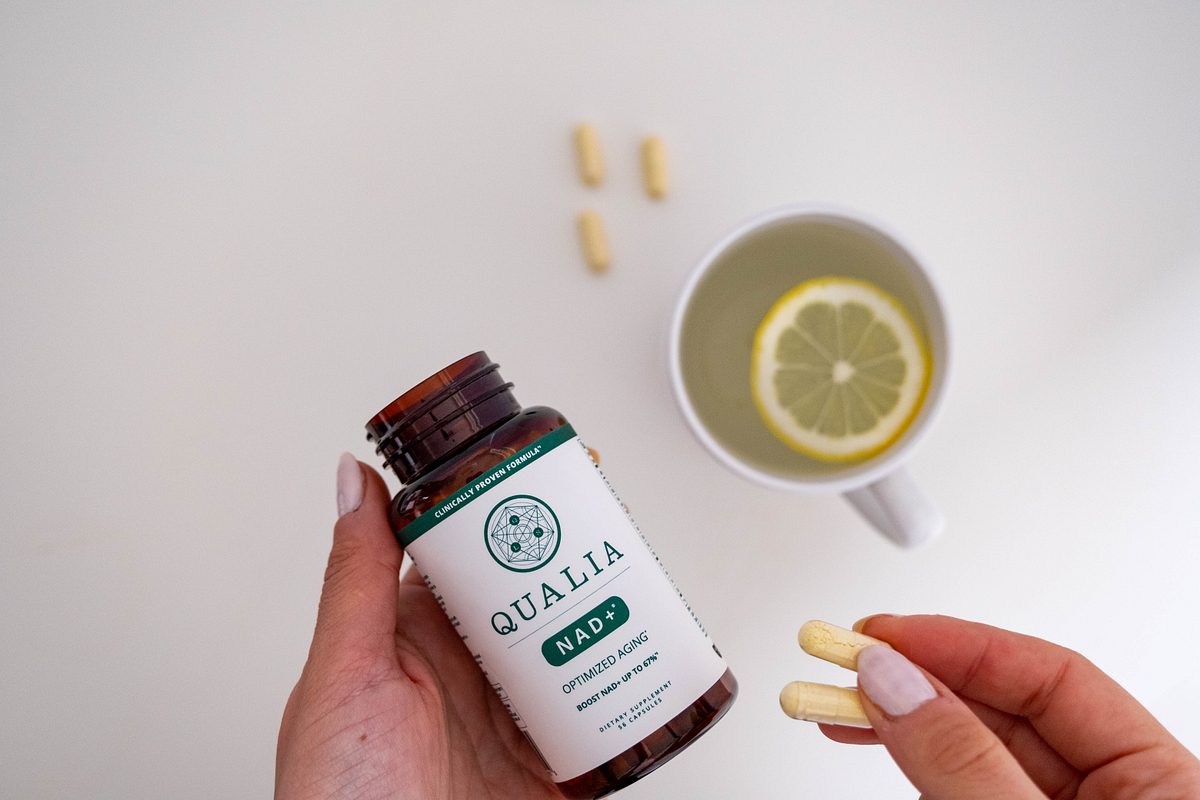Digestive health is essential for your overall well-being and quality of life. When your digestion runs smoothly, you feel energized, comfortable, and ready to take on the day. But when issues like bloating, constipation, or indigestion arise, they can disrupt your daily routine and impact your health in surprising ways.
Think about it: Struggling to zip up your favorite dress because of bloating or worrying about frequent bathroom trips during an important meeting can chip away at your confidence. These discomforts aren’t just minor inconveniences—they’re signals that your digestive system needs support.
The good news is you don’t have to live with these challenges. Let’s explore some easy tips to promote better digestion and help you feel your best.
5 Easy Tips for Better Digestion
1. Eat a High-Fiber Diet
Fiber plays a crucial role in digestion by keeping your gut balanced. It adds bulk to your stool and promotes regular bowel movements, helping to prevent constipation and support a healthy gut microbiome, reducing your risk of digestive issues.1, 2 A healthy microbiome is essential for nutrient absorption, immune function, and even mood regulation, as it influences the production of neurotransmitters.
Soluble fiber, found in foods like oats, beans, and fruit, slows down digestion and helps stabilize blood-sugar levels by preventing rapid spikes. This regulation is important for gut health because stable blood sugar can reduce cravings and overeating, which can lead to digestive discomfort. Additionally, soluble fiber can help lower cholesterol levels by binding to cholesterol in the digestive system and aiding its excretion, contributing to overall cardiovascular health.
Aim for 50g of fiber daily. This might sound like a lot, but you’ll hit that target quickly when you build your meals around high-fiber foods. Be sure to track your current fiber intake, and slowly increase by a few grams every couple of days to allow your body to get used to the additional fiber.
Extra Fiber delivers 12 types of soluble and insoluble fiber from fruits, vegetables, seeds, and tree extracts, including prebiotic fibers like acacia gum and inulin to support gut health. It’s unflavored and unsweetened with no artificial additives, and mixes easily into any drink or smoothie. A simple way to boost your daily intake!*
Tip 2: Stay Hydrated
Hydration is essential for effective digestion. Water helps break down food so nutrients can be absorbed efficiently. It softens food, making it easier for digestive enzymes to do their job and promoting the smooth movement of food through your digestive tract. Staying hydrated also prevents constipation by keeping stool soft and supporting regular bowel movements.3, 4
Drink plenty of water daily to stay hydrated and optimize digestion—a good rule of thumb is to drink half your weight in ounces of water per day. Green tea is another excellent choice; it’s packed with antioxidants and has been shown to support gut health.5 You can boost hydration further by including water-rich foods like cucumbers, watermelon, and strawberries. Loaded smoothies, like this Berry Cobbler Protein Shake, make slipping in these hydrating foods easy and delicious.
Tip 3: Eat Mindfully
In our fast-paced lives, it’s easy to rush through meals, but this habit can negatively impact your digestion. Mindful eating is a powerful practice that enhances your relationship with food and supports digestive health. It involves focusing on your meal—chewing thoroughly and savoring each bite. By paying attention to your food, you allow your digestive system to better process what you consume.
Mindfulness also helps you tune into your body’s hunger and fullness signals, which can prevent overeating. Stress, a common factor in our busy lives, can disrupt digestion by triggering the release of hormones that negatively affect gut function. Mindful eating encourages relaxation, reducing stress levels and promoting better digestion.6
Creating a calm eating environment is key. Put away your phone and turn off the TV to minimize distractions. Chew slowly, listen to your body, and take your time. Mindful eating not only aids digestion by promoting proper food breakdown but also helps prevent overeating and increases overall meal satisfaction.
Tip 4: Take an After-Dinner Walk
Walking after a meal is a simple yet effective way to enhance your digestion. This gentle movement stimulates the muscles in your digestive tract, promoting peristalsis—the process that moves food through your intestines. As you walk, the rhythmic contractions of your abdominal muscles help push food along, reducing bloating and discomfort.
Additionally, walking encourages the production of digestive enzymes, which play a vital role in breaking down food and improving nutrient absorption. This means your body can more efficiently utilize the nutrients in your meal.
Beyond the digestive benefits, a post-meal walk provides an opportunity to relax and enjoy fresh air, which can help lower stress levels. Lower stress contributes to better digestion, as high stress can disrupt the digestive process. A leisurely stroll also helps balance blood sugar levels by promoting the uptake of glucose into cells, preventing spikes that can occur after eating.7, 8
Tip 5: Take Digestive Enzymes Before Meals
Digestive enzymes are essential for breaking down food into absorbable nutrients. These enzymes target specific macronutrients: proteases break down proteins, lipases digest fats, and amylases handle carbohydrates. When food is broken down properly, your body can absorb vitamins, minerals, and other nutrients more efficiently.
As we age or experience stress, our body’s natural production of digestive enzymes can decline. This can lead to incomplete digestion, resulting in symptoms like bloating, gas, and discomfort. Taking digestive enzyme supplements can help bridge this gap by providing additional enzymes that assist in the digestion process.9
By promoting the breakdown of food before it reaches the intestines, digestive enzymes can enhance nutrient absorption. This means more of the beneficial compounds in your food are available for your body to use. Improved digestion can also reduce the workload on your gut, leading to less irritation and inflammation, which are often associated with digestive issues.
Additionally, better digestion can support a healthier gut microbiome. When food is digested properly, it minimizes undigested particles that can lead to imbalances in gut bacteria. Overall, incorporating digestive enzymes into your routine can significantly enhance your digestive health, helping you feel more comfortable and energized after meals.
A Comprehensive Digestive Enzyme to Optimize Digestion
Looking for an easy way to support your digestive health? Protein First Enzymes provide a powerful blend of digestive enzymes and betaine HCl to help your body digest proteins, fats, and carbohydrates. This cutting-edge supplement also targets challenging proteins like gluten and lactose, offering peace of mind when dining out or uncertain about meal ingredients.
If you often feel overly full, bloated, or constipated, Protein First Enzymes may be the solution. Simply take one capsule 10-15 minutes before each meal to enhance digestion and nutrient absorption. This small step can significantly improve how you feel after eating, allowing you to enjoy your meals without discomfort.*
Order Protein First Enzymes here.
References:
- Advent Health: Fiber: Your Digestive System’s Gut Health Hero
- Mayo Clinic: Dietary fiber: Essential for a healthy diet
- Mayo Clinic: Water after meals: Does it disturb digestion?
- Popkin BM, D’Anci KE, Rosenberg IH. Water, hydration, and health. Nutr Rev. 2010 Aug;68(8):439-58. doi: 10.1111/j.1753-4887.2010.00304.x. PMID: 20646222; PMCID: PMC2908954.
- Pérez-Burillo S, Navajas-Porras B, López-Maldonado A, Hinojosa-Nogueira D, Pastoriza S, Rufián-Henares JÁ. Green Tea and Its Relation to Human Gut Microbiome. Molecules. 2021 Jun 26;26(13):3907. doi: 10.3390/molecules26133907. PMID: 34206736; PMCID: PMC8271705.
- Nelson JB. Mindful Eating: The Art of Presence While You Eat. Diabetes Spectr. 2017 Aug;30(3):171-174. doi: 10.2337/ds17-0015. PMID: 28848310; PMCID: PMC5556586.
- NY Times: Just 2 Minutes of Walking After a Meal Is Surprisingly Good for You
- Healthline: The 11 Best Ways to Improve Your Digestion Naturally
- Healthline: Understanding Digestive Enzymes: Why Are They Important?
*These statements have not been evaluated by the Food & Drug Administration. Products mentioned are not intended to diagnose, treat, cure, or prevent any disease. The views in this blog by JJ Virgin should never be used as a substitute for professional medical advice. Please work with a healthcare practitioner concerning any medical problem or concern.
**I couldn’t make it without supportive relationships, and I bet you feel the same! That’s why my team and I offer you products and services we believe in. If you happen to purchase something I recommend here, I may receive some kind of compensation. However, I only bring you partners whose content and core values will serve you with the same commitment to excellence my team and I strive for every day. Please be in touch with any concerns.





